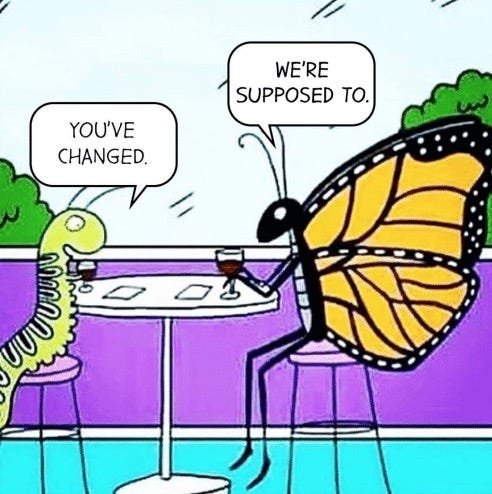Contradictory Self-Improvement Advocates
Self-improvement is often championed as a noble pursuit, with many individuals and communities encouraging others to strive for personal growth. However, there’s a paradoxical dynamic among certain proponents of self-improvement: they identify areas in which someone needs to grow, yet when that person successfully evolves, they criticize them for embodying the very traits they once lacked. Take, for instance, weight loss. When you lose weight and get healthy, you discover easily how many people in your life secretly wanted you to remain fat and unhealthy forever. Their disappointment over your dedication to getting healthy and improving yourself becomes painfully obvious. This contradictory behavior highlights a deeper complexity in how society perceives and reacts to change.
At the heart of this contradiction lies the subjective nature of personal improvement. What one person views as an admirable trait may be seen by another as excessive or undesirable when taken too far. For example, an individual might be encouraged to become more assertive if they are perceived as too passive. Yet, once they develop confidence and begin advocating for themselves, they may be admonished for being ‘too outspoken’ or ‘overbearing.’ This creates a frustrating cycle where the individual feels unable to strike the right balance in the eyes of others.
It all stems from several underlying factors. First, it reflects the discomfort some people feel when others change. Personal growth can disrupt established dynamics in relationships or challenge preconceived notions about someone’s identity. When an individual evolves, it may force those around them to reevaluate their own behavior or assumptions, which can lead to resistance or criticism.
Second, this behavior underscores the unrealistic expectations often placed on individuals pursuing self-improvement. The notion that one must change while simultaneously remaining unchanged, improving without altering their core identity, creates an impossible standard. It suggests that growth is only acceptable within narrowly defined limits, which stifles genuine progress.
Ultimately, this contradictory attitude reveals more about the critics than the person striving for improvement. It exposes their discomfort with change and their tendency to project their own insecurities onto others. For those navigating this paradox, the key is to remain focused on your own goals and values rather than seeking external validation. True self-improvement is not about pleasing everyone or gaining their approval: it is about becoming a better version of yourself according to your own standards.
While self-improvement is widely encouraged, the contradictory reactions of some advocates can make the journey more challenging. The tension between encouragement and criticism highlights society’s complex relationship with change and growth. By recognizing this dynamic and staying true to our own paths, we can overcome these obstacles and continue evolving in meaningful ways.
What has your self-improvement journey been like? What kind of obstacles have you faced along the way, and did those obstacles contribute to your overall growth?
Thanks so much for being here and reading Organarchy!



How many people do you think retreat from this personal development journey due to the scrutiny of those in their own social circles? Just even more of a reason to join groups/communities that support whatever mission you’re on!
It's been a tough few years . . . BUT I am in such a healthier place now. I get what you're saying about folks hating change. Courage is choosing to change.